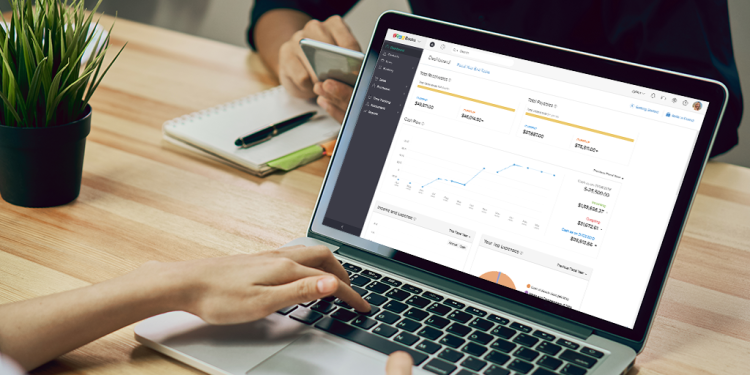The evolution of accounting software has been a major factor in the success of small businesses. In the past, business owners were required to manually manage their finances and payrolls, which was an extremely time-consuming process. Today, accounting software makes it easier for small business owners to monitor their finances and make more informed decisions.
This article provides a detailed overview of the milestones in the evolution of accounting software and its impact on small businesses.
From Pen And Paper To Digital Systems
The evolution of accounting software has been a fascinating journey of transformation, all the way from manual pen-and-paper processes to sophisticated digital systems. The traditional accounting methods involved labor-intensive bookkeeping and accounting tasks. These procedures were not only time-consuming but also prone to human error. The development of early accounting software in the late 20th century was a major leap forward, providing basic digitized accounting functions that significantly simplified financial management.
The Advent of Modern Accounting Software
The turn of the 21st century saw a more transformative shift toward modern accounting software. These were holistic, fully-integrated systems that automated a vast range of accounting functions. They allowed for better organization, storage, and retrieval of financial information. Features such as payroll management, inventory management, and financial reporting became standard.
Cloud Computing and SaaS: The Game Changers
The most impactful evolution in accounting software has arguably been the advent of cloud computing and Software as a Service (SaaS). The introduction of cloud-based accounting systems meant that businesses no longer needed to invest heavily in hardware infrastructure or engage in laborious software installations and updates.
One type of specialized software that emerged is construction accounting software. This niche software has brought an industry-specific focus to the financial needs of construction businesses, handling project cost tracking, job costing, equipment tracking, and more, thus underlining the evolving adaptability of accounting software.
The Impact on Small Businesses
1. Provide Customer Services
Accounting software has made it easier for small businesses to provide customer services, including invoicing and online payments. This has enabled businesses to lower their overhead costs while offering enhanced customer service. Additionally, accounting software allows for quick reconciliation of accounts, which is essential for small businesses that need to manage their finances effectively.
2. Streamlining Operations
Automation has greatly reduced the time and labor necessary for mundane accounting tasks. Bookkeeping, invoicing, tax computations, payroll, and many more functions can be handled with a few clicks. This has freed up business owners to focus on core business activities, increasing overall productivity.
3. Reducing Errors
The move from manual to automated systems has significantly reduced the risk of human errors. Accuracy is essential in accounting as mistakes can have serious financial and legal implications. The inherent precision of accounting software minimizes these risks and enhances overall financial management.
4. Providing Critical Financial Insights
Accounting software provides valuable real-time financial insights. It allows small business owners to analyze trends, monitor cash flow, and make informed financial decisions. Additionally, the integration of AI and machine learning into modern accounting software provides predictive analytics, giving businesses foresight into potential future financial scenarios.
The Future of Accounting Software
The future of accounting software looks promising. Emerging technologies like blockchain, AI, and machine learning will continue to revolutionize accounting processes, promising even more efficiency, security, and insightful data analytics.
Conclusion
The evolution of accounting software has had a profound impact on small businesses. By improving financial management, reducing errors, and providing valuable insights, accounting software has enabled small businesses to be more efficient, informed, and competitive in today’s fast-paced business environment. As technology continues to advance, we can expect even more transformative effects in the future.





